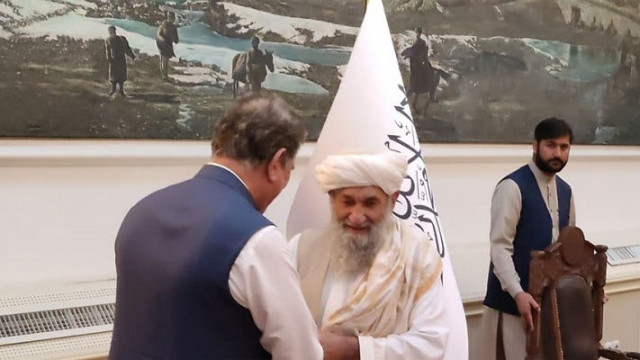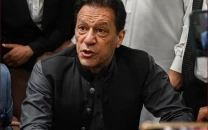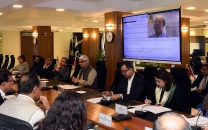Taliban govt won’t allow TTP, BLA to ‘attack Pakistan’: FM
Qureshi says Islamabad has conveyed its concerns over presence of these outfits in Afghanistan

The interim Taliban government on Thursday promised not to allow Afghan soil to be used by the banned Tehreek-e-Taliban Pakistan (TTP) and the Balochistan Liberation Army (BLA) against Pakistan after Foreign Minister Shah Mahmood Qureshi conveyed concerns over the presence of the terrorist outfits in the neighbouring country.
The Taliban in the past have given similar assurances, but this was the first time such guarantees came from interim Afghan Prime Minister Mullah Hasan Akhund during Qureshi’s visit to Kabul.
The foreign minister, on a first visit to Kabul since the Taliban returned to power on August 15, was leading a delegation, which included Director General Inter-Services Intelligence (ISI) Lt Gen Faiz Hameed and other officials from different ministries and departments.
The Afghan foreign minister and other interim cabinet members received the Pakistani delegation at the airport.
The two sides held delegation-level talks that lasted beyond the scheduled time meaning the foreign minister could not meet former Afghan president Hamid Karzai, Abdullah Abdullah and Gulbadin Hekmatyar.
They met with the Afghan interim premier, Deputy Prime Minister Abdullah Hanafi and other cabinet members including Foreign Minister Amir Khan Muttaqi, Finance Minister Mullah Hidayatullah and Defence Minister Yaqub Mujahid.
The discussions covered wide-ranging subjects from security to trade and from humanitarian assistance to the expectations of the international community from the Taliban government, officials familiar with the agenda told The Express Tribune.
Qureshi, during a news conference after his return to Islamabad, termed the day-long visit as “productive” and maintained that there was a visible change in the approach of the current Afghan government in comparison with the previous administration, which was reluctant to take certain steps to improve ties between the two countries.
He added that the Pakistani delegation included people from all sectors including security, commerce, aviation and other relevant departments.
The foreign minister claimed that the interim Afghan government had given a firm assurance that it would not allow their soil to be used against Pakistan by the banned TTP and BLA.
He said Pakistan had concerns over the presence of TTP and BLA on Afghan soil.
Similarly, Qureshi said he had told the Afghan Taliban government that it needed to take confidence-building measures to address the concerns of other regional countries on terrorism.
He particularly mentioned Russia, Iran and China, which were worried about the presence of certain terrorist outfits that posed a direct threat to those countries.
Read More: Pakistan desires broad-based, sustainable relationship with US: FM Qureshi
Qureshi said for example Russia had concerns over the presence of ISIS in Afghanistan; Iran had reservations over the killing of Hazara community, while China was also concerned over the presence of the East Turkestan Islamic Movement (ETIM).
“So, the Afghan Taliban need to enhance cooperation with these regional countries on counterterrorism.”
When asked whether his visit should be seen as formal recognition of the Taliban government, Qureshi said that was not the case.
He explicitly said nobody or Pakistan had recognised the Taliban government.
“I informed the Taliban interim government about the expectations of the international community,” he said.
“An inclusive government, women rights and denying terrorist outfits from using the Afghan soil are some of the conditions that the international community wants the Taliban to meet.”
Despite those words, the Pakistan government announced several measures not just to provide humanitarian assistance but also to prevent an economic collapse of Afghanistan.
The minister announced an “in-kind” assistance of Rs5 billion, which Pakistan would donate in the form of pharmaceuticals or any other goods of Afghanistan’s choice.
Qureshi told reporters that on the request of the interim Afghan Taliban government, Pakistan had decided to open the border crossings -- Chaman and Torkham -- for 24 hours for trade.
The borders earlier remained open for eight hours.
Similarly, the timing of Afghans crossing the border by foot has now been increased from eight to 12 hours.
Other measures include visa on arrival for businessmen, authorising the Pakistani mission in Kabul to issue multi-entry visa for five years to Afghan businessmen, visa on arrival for people in need of medical attention, abolishment of a gate pass for entry, and waiver of online visa fee.
The requirement for the Covid-19 PCR test has been waived off and the National Database and Registration Authority’s (NADRA) service charges of $8.18 suspended till December 31 this year.
The Pakistan government also decided to import duty-free fresh fruit and vegetables from Afghanistan to help its economy.
In another measure to facilitate the trade, now Afghan trucks can unload the goods at the Karachi port. Earlier, they were transferred to Pakistani trucks at the border.
Qureshi said the interim Afghan government was ready to work on regional connectivity projects such as KASA-1000, TAPI gas pipeline and transnational railways.
The foreign minister said the Afghan delegation would pay a return visit to Islamabad soon where the two sides would further discuss measures to improve trade and commercial ties.
Qureshi said the purpose of the visit was to resolve “minor irritants” that occurred between the two countries.
The minister’s visit comes after prolonged problems at the Chaman border crossing, one of the main trade transit points between Afghanistan and Pakistan, which has been closed for more than two weeks, causing severe problems for truckers and exporters.
In addition, PIA, the only international airline that has been operating regularly in Kabul, suspended flights last week, complaining of interference and harassment of its staff by Taliban officials.
When asked whether PIA’s country manager was harassed or held on gunpoint, the minister termed such reports as “baseless”.
Indian invitation
Qureshi also confirmed receiving the Indian invitation for a regional conference on Afghanistan to be held in New Delhi next month but said the decision would be made at an “appropriate time”, keeping in view the current state of ties between the two countries.
“There is of course no warmth in ties between the two countries. It is also a fact that India is committing human rights abuses in occupied Kashmir. Therefore we will make the final decision keeping in view all these things.”



















COMMENTS
Comments are moderated and generally will be posted if they are on-topic and not abusive.
For more information, please see our Comments FAQ